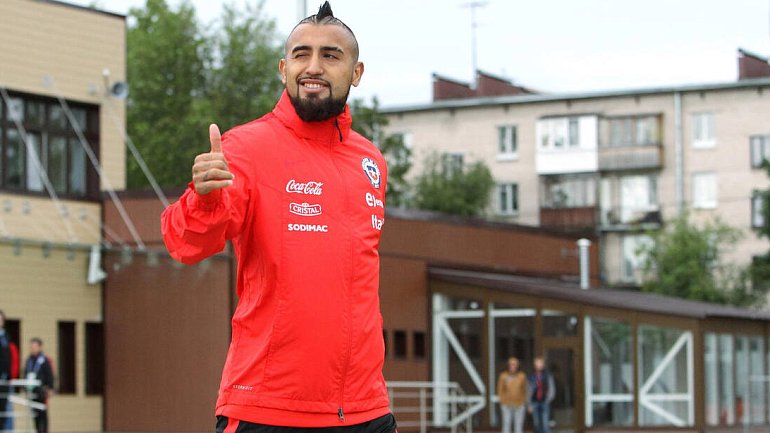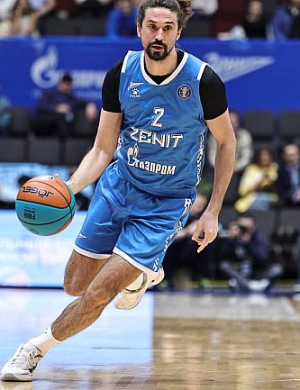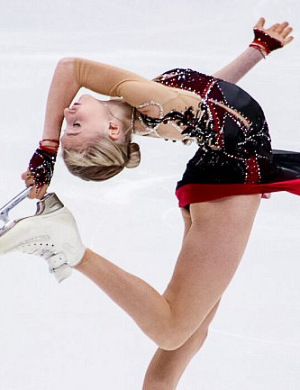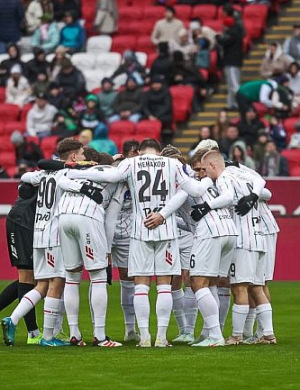-
Russia’s summer gift
British author of sportsdaily.ru visited all four russian cities during Confederations Cup FIFA 201705.07.17 10:47

The Confederations Cup is a strange affair. Although it is technically a fully competitive FIFA tournament, everybody knows that it is essentially a large set of meaningless friendlies condensed into a two-week block.
However, for Russia, it has been much more than that. This is the testing ground for next year's World Cup on home soil where any potential big issues are nipped in the bud before the real party kicks off next year.
With next year's tournament so heavily scrutinised by foreign politicians and newspapers alike, this Confederations Cup has given Russia the chance to change people's perception of a country which has so often found itself looked down upon and ridiculed.
Before the Confederations Cup had even kicked off, we saw a defiant performance from Vitaly Mutko in the tournament's opening press conference in St. Petersburg. The head of the Russian Football Union initially seemed jovial as he took questions from journalists about the upcoming tournament, welcoming everybody to Russia and emphasising how ready the country was to host the Confederations Cup. However, he then went on the defensive as he was asked about some of the more controversial incidents surrounding the Confederations Cup and the upcoming World Cup.
For instance, a British journalist asked Mutko about the rumoured North Korean slave workers on the stadium site in St. Petersburg. In response to this, the former Sports Minister's smile turned to a frown and he answered in a rather aggressive manner, inviting the journalist on a tour around the stadium telling him 'We will see if they are there or not, either way, you will have your story'.
Following Mutko's outburst, perhaps an even more surprising admission came from the FIFA panel when General Secretary Fatma Samoura admitted that there had been North Korean workers on the site but that they had now left.
This press conference had transformed from a warm welcome to Russia into a snake pit within just a couple of minutes, leaving many to question whether we were in the right place for the tournament after all.
Safe Venues
The only way to turn around people's opinions of Russia as a World Cup host was to sufficiently impress them with a successful Confederations Cup. With this in mind, there can be no doubt that the Local Organising Committee chose the four safest venues for the tournament: St. Petersburg, Moscow, Sochi and Kazan. All four of these cities have good experience in welcoming tourists and, St. Petersburg aside, all of them have had little to no problem in developing the stadia and infrastructure required to host a major tournament.
Moscow and St. Petersburg in particular are well-known destinations for foreigners and therefore infrastructure is very much up to standard. However, Sochi and Kazan were much more of an unknown quantity for many.
Given that the Winter Olympics were hosted by Sochi in 2014, the Black Sea tourist resort is no stranger to big events and, in fact, hosting those Olympics was a far more complex task than the Confederations Cup. However, this has been the first time that Sochi has hosted a football tournament; bringing numerous complications. The biggest of these complications is that, as Sochi does not have a full time professional club, the city is not used to welcoming a mass onslaught of fans on a regular basis.
Additionally, as the Winter Olympics was hosted in several different venues, the management of large crowds was easier whereas, at both the Confederations Cup and World Cup, the pressure brought by the sheer volume of people is focused on just one venue — Fisht Stadium.
Despite the initial worries I had about this, the organisation at the stadium was excellent during this Confederations Cup and there was never a sense of claustrophobia. Having said that, it must be remembered that the crowds were very small and, as such, the real test will come next year when some, if not all, games are likely to be sold out.
Kazan was always going to be the most concerning out of the four venues as, although it has hosted world class sporting events in the past (2015 FINA World Championships), it has never had the influx of people that the World Cup will bring. Despite this, if the Confederations Cup is anything to go by, there should not be too much of a problem. The issues with the pitch experienced back in March seem to have subsided whilst many foreign visitors have been intrigued to see a side of Russia that they did not know existed (in this case Tatarstan) — bringing excitement about other unknown venues next year.
Hooligans and Racists
When most foreigners think of Russian football, they think of hooliganism and racism. Whilst this is not a problem unique to Russia, there can be no doubt that it is a serious issue and, in fact, it is the main reason why so many people are against Russia hosting the World Cup.
However, the Confederations Cup has shown that Russian football can exist without these vile undertones and the tournament has seen Russian natives present themselves as some of the most hospitable people around. As somebody who has spent a lot of time in Russia over the last few years, I can assure foreign visitors that this is in no way a facade or a temporary mask which will be lifted after the World Cup but, in fact, is a true representation of the Russian people.
Perhaps a little anecdote from the tournament is the best way to demonstrate this point. At Chile v Cameroon in the first round of group matches, I noticed a Russian fan hold aloft a Cameroon flag and cheer for the African side before sitting back down and sharing a drink with a group of Chilean fans — true Russian hospitality.
The British in particular are fearful of coming due to last year's chaos in Marseille where English and Russian fans clashed in bloody brawls at the European Championships. However, the Confederations Cup has proved that not all Russian football fans are brainless hooligans who thirst for blood and, so far, there have been no reported incidents of football violence involving Russian fans.
Whilst there is no doubt that English fans will still worry about coming over following last year's dreadful scenes, hopefully the Confederations Cup has shown them that Russia and its people are just like most other people in the world — civilised and hospitable; determined to show foreigners the true side of their country.
Pleasantly surprised
As mentioned earlier, with the Confederations Cup being such a minor tournament, it is hard to judge whether the success we have seen in the four cities over the last two weeks can translate into next year's World Cup which sees another seven host cities added (some more prepared than others) as well as an extra two weeks of football.
However, if next year's World Cup is anywhere near as well organised as these last two weeks, then Russia will have done an excellent job.
There will of course still be controversy and hostility to the Russian World Cup next year, however, overall, people have told me how surprised they are with the high level of preparation and good nature of Russian people. Foreign fans and press alike had initially arrived in trepidation, expecting violence, abuse and the cold shoulder. However, what they actually got was a well-organised tournament and a warm embrace as Russians keenly showed that there is more to their country than bears and matryoshki.
More of this next year please!
Новостная рассылкаПодпишитесь на рассылку лучших материалов «Спорт день за днём»Новости партнёров



